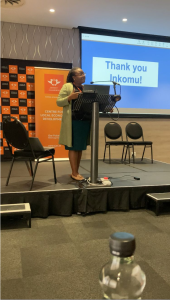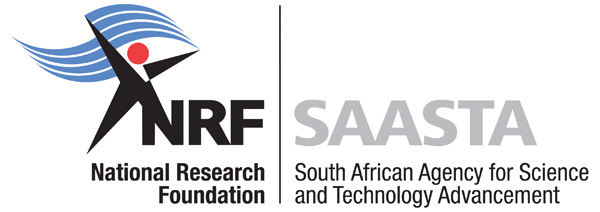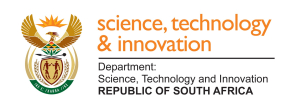NRF-SAASTA participates at the VII International Congress on Sustainable Development (SD2025)
06 November 2025

Image: Ms. Makhanana Nkhwashu Science engagement coordinator at NRF-SAASTA presenting a paper at the conference title ‘’opportunities for carbon dioxide transportation in South Africa’’
The VII International Congress on Sustainable Development (SD2025), themed “Resilient Regions and Global Partnerships for Social Innovation and Sustainable Development,” concluded recently in Cape Town. Held from October 29 to 31, 2025, at the Lagoon Beach Hotel, the event drew participants from academia, businesses, and the public sector to address pressing challenges in sustainable regional development.
Organised by the Centre for Local Economic Development (CENLED) within the University of Johannesburg’s School of Economics, the congress was conducted in partnership with international institutions, including the Polytechnic University of Portalegre (Portugal), University of Extremadura (Spain), University of the Azores (Portugal), Integrado Group (Brazil), and University of Madeira.
CENLED, a research and training hub focused on local economic development, has hosted this congress since its inception, emphasising interdisciplinary approaches to foster inclusive growth in peripheral and cross-border regions. The event provided a platform for sharing innovative solutions amid global issues like climate change, urbanisation, and economic inequality.
In addition, the congress aimed to explore dynamic transformations shaping regional resilience, highlighting the role of global partnerships in achieving the United Nations Sustainable Development Goals (SDGs). Discussions centred on integrating social innovation with sustainable practices to build equitable economies, particularly in developing and transitional regions. Researchers from across the world presented various papers on sustainability and development aligned to the theme.
The topics aligned with multiple SDGs, from poverty reduction (SDG 1) to climate action (SDG 13) and partnerships for the goals (SDG 17), encouraging cross-sectoral dialogue.
The conference took place over three days under the direction of Dr. Chané de Bruyn, featuring keynotes, panel discussions, parallel breakout sessions, and networking opportunities. Sessions were held at the Lagoon Beach Hotel, with daily themes guiding the agenda.
Ms. Makhanana Nkhwashu, a DEng student at Tshwane University of Technology and Science Engagement Coordinator in the Science Education section at NRF-SAASTA, presented a paper titled “Opportunities for Carbon Dioxide Transportation in South Africa.” The paper forms part of ongoing research on bulk carbon dioxide transportation options.
Day 1 focused on Climate Resilience for Sustainable Regional Economies. The day opened with welcome addresses and keynotes by Prof. Marius Venter, Director of CENLED, who provided an overview of the congress, while Prof. Rui Alexandre Castanho discussed its origins and partnerships.
Masixole Nkumbesi from Cape Town’s Department of Informal Settlements presented “The Density Dilemma: Addressing Climate Resilience and Innovative Solutions in High-Density Informal Neighbourhoods,” leading into a panel discussion. Afternoon sessions, held across three rooms, covered environmental sustainability, inclusive regional development, smart cities, and governance.
Notable presentations included Peter Baur on the role of arts in integrating economies. The day concluded with a semi-formal gala dinner featuring entrepreneurial stories and networking.
Day 2 centred on Sustainable Regional Development and Partnerships. The programme emphasised higher education’s role in national cohesion, with a keynote by Prof. Luís Loures on the Portuguese case study. Presentations explored green innovations, circular landscapes, and financial inclusion in Africa and globally. The day ended with a conference summary and announcements for the 2026 edition.
The final day was dedicated to follow-up meetings and networking, allowing delegates to strengthen collaborations and discuss future initiatives.
A notable feature of the congress was the partnership with MDPI’s open-access journal Land, inviting presenting authors to submit full papers for a special issue on congress themes. This collaboration ensures that research from SD2025 reaches a wider audience, contributing to peer-reviewed advancements in land management, environmental sustainability, and regional planning.
SD2025 exemplified the power of interdisciplinary and international cooperation in tackling sustainability challenges. The congress not only advanced knowledge on resilient regions but also laid the groundwork for actionable global partnerships.
As the world progresses toward the 2030 Agenda for Sustainable Development, events like this remain crucial for translating ideas into impact.

 The South Africa Agency for Science and Technology Advancement (SAASTA) is a business unit of the
The South Africa Agency for Science and Technology Advancement (SAASTA) is a business unit of the 